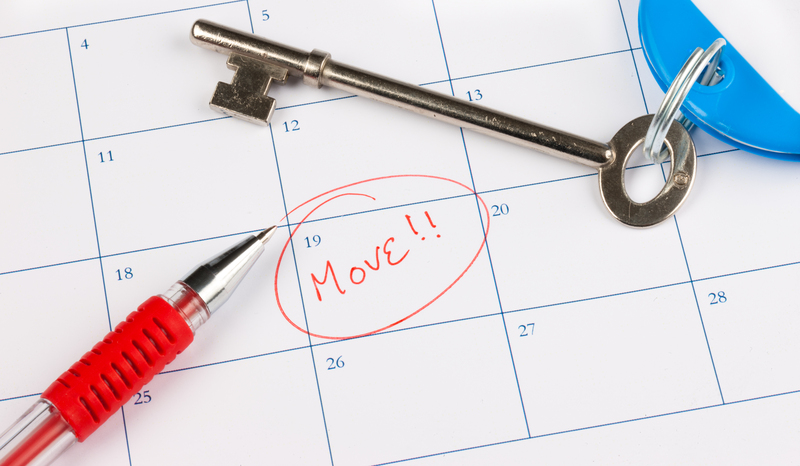Achieve a Stress-Free House Move with These Tips
Posted on 12/06/2025
Achieve a Stress-Free House Move with These Tips
Moving homes is often said to be one of life's most challenging transitions. The mixture of anticipation for a new chapter and the anxiety of tackling endless to-do lists can feel overwhelming. Whether you're relocating across town or to a different city, the moving process can generate stress if not managed wisely. However, with effective preparation and the right strategies, a stress-free house move is more attainable than ever. In this comprehensive guide, we unveil actionable tips and expert advice to ensure your next move is smooth, organized, and--yes--stress-free.

Why Is Moving a House So Stressful?
Relocating brings significant changes, from adjusting to a new environment to handling logistics and emotional farewells. Many people feel unsettled due to:
- Packing and organizing every possession
- Managing timelines and logistics
- Saying goodbye to familiar places
- Worrying about the security of valuable items
- Adjusting to new routines and neighborhoods
If you've experienced heightened stress during a move, you're not alone. Fortunately, learning how to make moving house less stressful can empower you for your next relocation.
1. Start Planning Early
The cornerstone of a stress-free home move is early planning. Procrastination is the enemy of a smooth move, leading to last-minute challenges and avoidable setbacks.
- Set up a moving timeline: Allocate clear deadlines for decluttering, packing, utilities arrangements, and moving day tasks.
- Book professional movers or truck rentals early: This ensures availability and grants you peace of mind.
Early planning allows you to break the entire process into manageable steps, reducing day-of chaos.
2. Declutter Before You Pack
One of the best-kept secrets of an easy house moving experience is to declutter before you even start packing. This minimizes what you need to move, saving time, energy, and potentially even money.
- Go room-by-room, sorting items into "keep", "donate", "sell", or "discard".
- Host a garage sale or use online platforms to sell unwanted items.
- Donate usable goods to local charities or shelters.
- Dispose responsibly of broken or expired items.
By paring down your possessions, packing and unpacking become more efficient, and your new home feels fresher--free of clutter.
3. Gather Packing Supplies in Advance
Avoid last-minute runs to the store by assembling all necessary supplies before you start boxing your items. A well-stocked moving kit typically includes:
- Sturdy boxes of various sizes
- Packing tape and dispensers
- Permanent markers or printed labels
- Bubble wrap, packing paper, or old newspapers
- Furniture covers and mattress bags
- Scissors and box cutters
Purchasing or collecting quality packing supplies in advance prevents delays and helps you keep everything organized, supporting a smooth and stressless move.
4. Create a Room-by-Room Packing System
Resist the urge to toss items haphazardly into boxes. Instead, adopt an organized packing approach:
- Pack one room at a time, starting with the least-used spaces.
- Label each box with its contents and destination room.
- Color-code labels or tapes for quick identification upon arrival.
- List "must unpack first" essentials for each room.
A systematic approach not only preserves your belongings but also simplifies the unpacking process, making your house move less stressful.
5. Keep Important Documents and Items Separate
During the shuffle of moving day, it's easy for essential items to get misplaced. Prepare a separate bag or box marked as "essentials" including:
- Identification, passports, and wallet
- Moving contracts and new home keys
- Prescription medications
- Phone chargers
- Pet supplies, snacks, and children's comfort items
Staying organized with critical documents and necessities will greatly reduce anxiety when unexpected situations arise.
6. Notify Important Parties Ahead of Time
A successful, stress-free moving experience isn't just about packing--it's also about making sure your services and communications transition smoothly. Create a checklist to:
- Change your address with the postal service, banks, and relevant authorities
- Update details with subscriptions, schools, and employers
- Arrange for utilities (electricity, water, gas, internet) to be transferred or set up in your new home
- Inform healthcare providers of your move for seamless medical care transfer
Completing these tasks in advance ensures you settle into your new home without unnecessary disruptions.
7. Consider Hiring Professional Movers
While a DIY move can appear cost-effective, the expertise, equipment, and insurance offered by professional moving companies offer significant value, especially for long-distance or large moves.
- Research and compare reputable movers in your area
- Look for companies with positive reviews and transparent pricing
- Clarify their experience with special items (pianos, antiques, art, large furniture)
- Book early to secure your preferred date
Delegating the heavy lifting to experts can dramatically reduce the physical and mental strain associated with moving, helping you achieve a hassle-free house move.
8. Be Mindful of Moving Day
The day you move can make or break your stress levels. On moving day:
- Start early to take advantage of daylight hours
- Wear comfortable clothing and sturdy shoes
- Keep water and snacks at hand for all helpers
- Double-check that nothing is left behind
- Walk through your old home once it's empty
Being prepared and calm supports a streamlined transition and reduces the risk of oversights.
9. Take Care of Yourself and Your Family
Moving house entails both physical exertion and emotional adjustment. To maintain wellbeing during a house move:
- Schedule breaks and ensure regular meals and hydration
- Enlist help from friends or family, especially if you have young children or pets
- Talk openly about feelings to ease the transition, particularly with children
- Bring along familiar comfort items to the new house for immediate reassurance
Prioritizing self-care throughout the process can make moving into a new home a positive memory, rather than a stressful ordeal.
10. Settle into Your New Home Thoughtfully
Once you arrive at your new address, it's tempting to try and unpack everything immediately. However, easing into your new environment fosters better adjustment and satisfaction.
- Begin by assembling beds and unpacking essentials first
- Create a relaxed, "first night" box with pajamas, sheets, toiletries, and towels
- Take a walk around your neighborhood to familiarize yourself with local shops and amenities
- Meet your new neighbors and introduce yourself
A phased approach helps you avoid post-move exhaustion and allows your family to comfortably transition into your next chapter.
Extra Tips to Make Moving House Less Stressful
Consider these bonus suggestions to further ensure the easiest, stress-free relocation possible:
- Photograph electronics and furniture assembly: Take pictures before disassembly to make reassembly easier at your destination
- Use suitcases and laundry baskets: Maximize all available containers to move items securely
- Take care of perishables: Plan meals to use up food and defrost your fridge/freezer the day before moving
- Secure valuables: Carry jewelry and critical documents with you separately
- Inform neighbors at both ends about your moving day to facilitate smooth access and parking
Moving with Children and Pets
Family members with special needs--kids and pets--can find the upheaval of moving particularly challenging. For a stress-free family move:
- Prepare children in advance, discussing what to expect and exploring the new neighborhood online
- Set aside favorite toys and comfort items for easy access
- Arrange pet care for moving day or designate a calm room free from commotion
- Secure help from friends or hire professional pet sitters
Caring for your youngest and furriest family members minimizes anxiety and ensures everyone arrives at your new home happy and safe.

How to Cope with Moving Stress
If anxiety creeps in despite your planning, it's crucial to have coping strategies:
- Focus on the positives--new opportunities, fresh surroundings, personal growth
- Stay organized with lists and checklists
- Practice deep breathing or short breaks when overwhelmed
- Accept help and delegate wherever possible
With the right mindset and support system, moving can be a transformative and empowering experience.
Conclusion: Your Path to a Smooth, Stress-Free Move
Relocating doesn't have to be a source of dread. By embracing these tips for a stress-free house move--from meticulous planning and decluttering to mindful self-care--you can turn the process into a streamlined, even exciting, adventure. Remember, every well-considered step paves the way for less chaos and more enjoyment as you enter your new home.
Commit to these practices, keep a positive outlook, and enlist support where needed. Your stressless moving day awaits--begin yours with confidence and clarity today!
Latest Posts
Streamline the Process of Moving Your Bed and Mattress
Achieve a Stress-Free House Move with These Tips
Transform Your Moving Experience with Decluttering
Extend Freezer Life with Proper Storage Techniques
Packing Success: Ensuring a Smooth Transition to Your New Home



